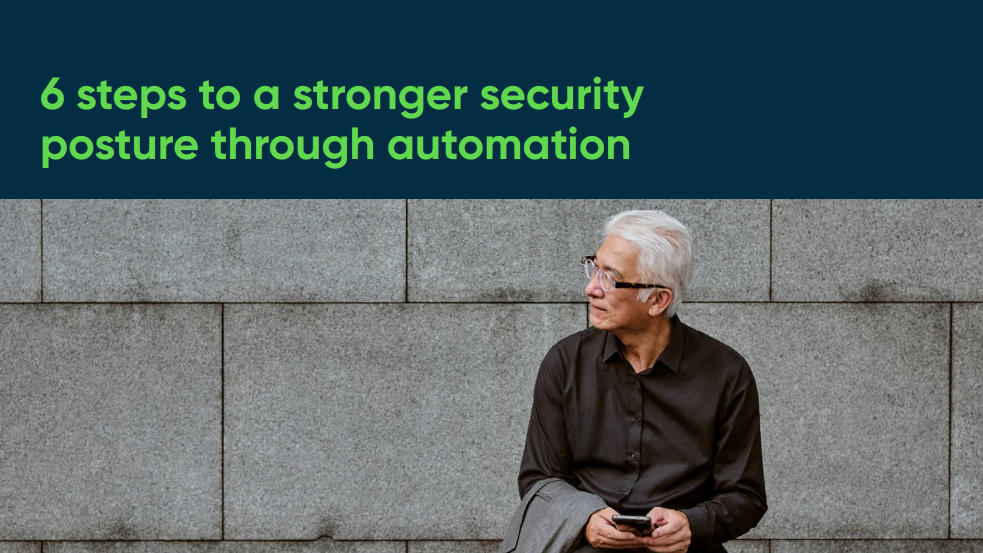Cryptojacking attacks surge 399% globally as threat actors diversify tactics
Attackers are switching tactics to wreak havoc and maximize financial gains


Security experts have issued a warning over a significant increase in cryptojacking attacks as threat actors seek to ‘diversify’ their tactics.
The volume of cryptojacking attacks surged by 788% in Europe during the first half of the year, with attacks in North America also rising by 345%.
Globally, the volume of cryptojacking attacks has increased by around 399%, according to research from SonicWall.
This increase marks the highest year-on-year record for global cryptojacking attacks, the firm said, and highlights a shift away from traditional ransomware attacks in favor of “stealthier means of malicious activities”.
“Cyber criminals are diversifying and expanding their skill sets to attack critical infrastructure, making the threat landscape even more complex and forcing organizations to reconsider their security needs,” the company said in a statement.
This rise comes amid a decline in global ransomware attempts, which have dropped by 41% since the beginning of the year. However, the research indicated an upward trend in other attack methods, such as IoT malware (+37%) and encrypted threats (+22%).
RELATED RESOURCE

Six steps to a stronger security posture through automation
Discover the tools to boost your cyber resilience.
Bobby Cornwell, vice president of product security at SonicWall, said the evolving tactics witnessed in recent months show a desire among threat actors to harness techniques that are low-cost, but often deliver high returns.
Sign up today and you will receive a free copy of our Future Focus 2025 report - the leading guidance on AI, cybersecurity and other IT challenges as per 700+ senior executives
“SonicWall intelligence suggests that bad actors are pivoting to lower-cost, less risky attack methods with potentially high returns, like cryptojacking,” he said.
“It also explains the reason we’re seeing higher levels of cyber crime in regions like Latin America and Asia. Hackers search for the weakest points of entry, with the lightest possible repercussions, limiting their risk and maximizing their potential profits.”
High-priority targets
Globally, SonicWall found that ransomware attacks on a host of industries saw a decline during the first half of the year, reflecting a broader dip in ransomware activity.
However, popular target sectors such as healthcare, government, and education all faced an increase in cryptojacking attacks.
Cryptojacking attempts against educational institutions surged by 320% while government-related attacks also increased by 89%.
“The seemingly endless digital assault on enterprises, governments, and global citizens is intensifying, and the threat landscape continues to expand,” said SonicWall president and CEO Bob VanKirk.
“Threat actors are relentless, and our data indicates they are more opportunistic than ever, targeting schools, state and local governments, and retail organizations at unprecedented rates.
What is cryptojacking?
Cryptojacking is a type of attack that harnesses a victim’s desktop or laptop device to mine cryptocurrency.
This form of attack has grown in popularity among threat actors alongside the rise of cryptocurrencies in recent years, and is typically initiated when a victim unwittingly installs malware on their device.
Phishing attacks are frequently leveraged to initiate this type of attack, prompting users to click on a malicious link in email correspondence, or even on a webpage.
Victims of cryptojacking often might not be aware they’ve even fallen prey to cyber criminals, enabling the attacker to fly under the radar and mine cryptocurrency for extended periods.
There are telltale signs, however. One of the main signs of cryptojacking is decreased device performance due to the increased use of processing power.
Similarly, for laptop devices, a rapidly decreasing battery capacity can also be a telltale sign that a user has been compromised and their device is being used to mine currencies.

Ross Kelly is ITPro's News & Analysis Editor, responsible for leading the brand's news output and in-depth reporting on the latest stories from across the business technology landscape. Ross was previously a Staff Writer, during which time he developed a keen interest in cyber security, business leadership, and emerging technologies.
He graduated from Edinburgh Napier University in 2016 with a BA (Hons) in Journalism, and joined ITPro in 2022 after four years working in technology conference research.
For news pitches, you can contact Ross at ross.kelly@futurenet.com, or on Twitter and LinkedIn.
-
 The UK AI revolution: navigating the future of the intelligent enterprise
The UK AI revolution: navigating the future of the intelligent enterpriseAs AI reshapes industries and societies, decision-makers in the UK face a critical choice: build a sovereign future or merely import it.
-
 Turning the UK AI revolution into a sovereign reality
Turning the UK AI revolution into a sovereign realityThe UK AI Revolution documentary series posed difficult questions about AI’s hype, control, and future. Now, IT leaders must find the architectural answers
-
 There’s a dangerous new ransomware variant on the block – and cyber experts warn it’s flying under the radar
There’s a dangerous new ransomware variant on the block – and cyber experts warn it’s flying under the radarNews The new DeadLock ransomware family is taking off in the wild, researchers warn
-
 Hacker offering US engineering firm data online after alleged breach
Hacker offering US engineering firm data online after alleged breachNews Data relating to Tampa Electric Company, Duke Energy Florida, and American Electric Power was allegedly stolen
-
 Cybersecurity experts face 20 years in prison following ransomware campaign
Cybersecurity experts face 20 years in prison following ransomware campaignTwo men used their tech expertise to carry out ALPHV BlackCat ransomware attacks
-
 15-year-old revealed as key player in Scattered LAPSUS$ Hunters
15-year-old revealed as key player in Scattered LAPSUS$ HuntersNews 'Rey' says he's trying to leave Scattered LAPSUS$ Hunters and is prepared to cooperate with law enforcement
-
 The Scattered Lapsus$ Hunters group is targeting Zendesk customers – here’s what you need to know
The Scattered Lapsus$ Hunters group is targeting Zendesk customers – here’s what you need to knowNews The group appears to be infecting support and help-desk personnel with remote access trojans and other forms of malware
-
 Impact of Asahi cyber attack laid bare as company confirms 1.5 million customers exposed
Impact of Asahi cyber attack laid bare as company confirms 1.5 million customers exposedNews No ransom has been paid, said president and group CEO Atsushi Katsuki, and the company is restoring its systems
-
 The US, UK, and Australia just imposed sanctions on a Russian cyber crime group – 'we are exposing their dark networks and going after those responsible'
The US, UK, and Australia just imposed sanctions on a Russian cyber crime group – 'we are exposing their dark networks and going after those responsible'News Media Land offers 'bulletproof' hosting services used for ransomware and DDoS attacks around the world
-
 A notorious ransomware group is spreading fake Microsoft Teams ads to snare victims
A notorious ransomware group is spreading fake Microsoft Teams ads to snare victimsNews The Rhysida ransomware group is leveraging Trusted Signing from Microsoft to lend plausibility to its activities